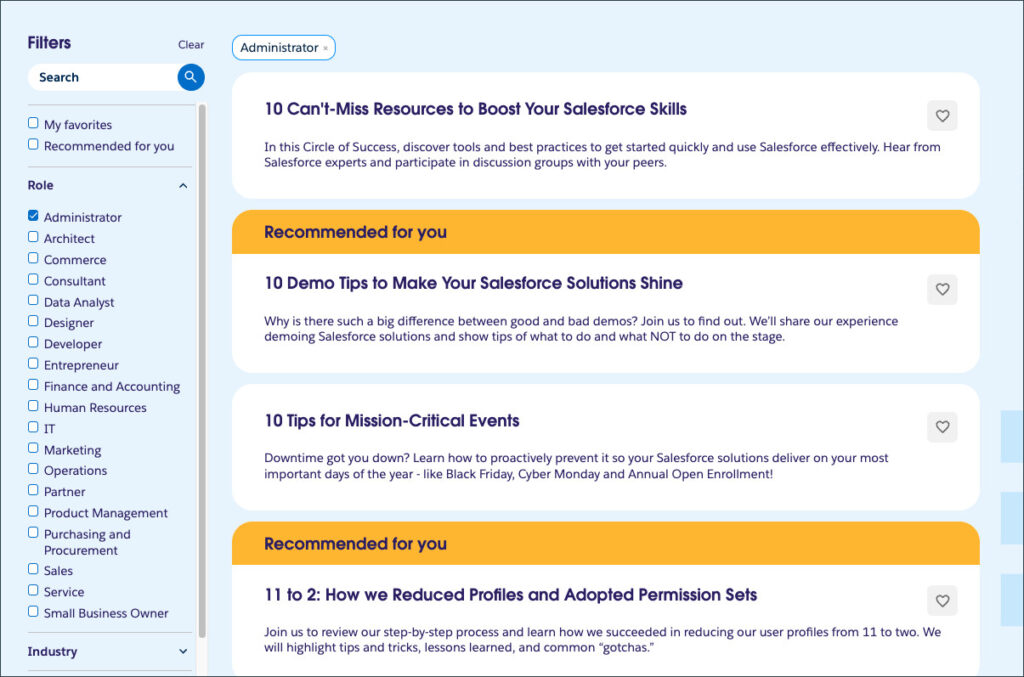Do you have the “entrepreneur itch”? It hits everyone a little differently. Maybe it’s a side hustle idea that you know you’d be good at. Or a problem you’re tired of seeing go unsolved. Whatever’s nudging you toward this path — it’s valid, and it’s exciting. You don’t need to have all the answers, you just need to get started with your business. And with the right steps, you’ll be surprised at how quickly things can click into place. Before you know it, you’re the entrepreneur that you were always dreaming of.
So, how do you actually go from inspired reader to real-world entrepreneur? Let’s break it down — step by step.
What you’ll learn:
- What does it mean to be an entrepreneur?
- Step 1: Find a problem worth solving
- Step 2: Know your “why”
- Step 3: Build essential business skills
- Step 4: Create a business plan
- Step 5: Secure the right funding (if needed)
- Step 6: Build your toolbox
- Step 7: Register and launch your business
- Step 8: Get ready to scale
- Common challenges and how to overcome them
- Ready to become the entrepreneur you’ve always dreamed of?
What does it mean to be an entrepreneur?
An entrepreneur is a person who organizes and operates a business, often taking on greater-than-normal financial risks to make it happen. They start a business because they see a problem. It could be a product or a service. You don’t need a business degree or a big office to be one. If you’ve started something on your own and you’re working to grow it, you’re already doing the work.
Being an entrepreneur means you make the calls for your business. You set the vision, make the decisions, and deal with the ups and downs. It’s not just about new business ideas. You have to show up and take the risks. You learn as you go and figure things out even when there’s no perfect plan. The truth is — It’s less “Shark Tank” and more “let’s test this and see what happens.” (But hey, if you can get on Shark Tank, go for it. We’ll cheer you on!)
For small and medium-sized business (SMB) owners, entrepreneurship often starts with a simple idea or a personal need. Maybe you wanted more flexibility. Or you saw a gap in the local market. Either way, you’re building something with purpose. And that’s what makes you an entrepreneur.
Now that you know what being an entrepreneur really means, let’s talk about how to become one. Here’s a step-by-step guide to help you start and keep going.
Start with SMB Basics
Step 1: Find a problem worth solving
Every successful business starts with a problem that they solve, and deep down if you’re reading this article, you already have an idea you’re chewing on. So, bring your idea to life, with figuring out how to solve the problem. Not a small one. But, a big problem, something real that people face in their daily lives. Your job is to solve it.
Look around, talk to people. Ask what they struggle with — at work or at home. Scroll through social media comments or reviews of existing products. Look for complaints, repeated questions, or workarounds people are using. Those are gold.
Once you have a solution, test your idea. Share it with a few people who’d actually use it. Don’t ask if they like it, ask if they’d pay for it. If they say yes, dig deeper. You can conduct market research to analyze demand and competition. Your goal here is to simply refine your idea based on insights. The best business ideas aren’t always flashy. They’re often simple fixes to annoying problems. If you solve something that saves people time, money, or effort — you’re onto something.
Need some inspiration? Check out our guide on small business ideas for promising startup opportunities.
Step 2: Know your “why”
Before you think about customers or products, take a step back. Ask yourself why you really want to start this business. What’s pushing you to make this leap? Your “why” is what’ll keep you going when things get tough. Some entrepreneurs want more freedom. Others want to create jobs in their communities. Whatever it is, your reason to start a small business matters. It’s what keeps your business grounded and focused. Here are a few questions to think about:
- What do I want to change or improve with this business?
- What would make this business worth it, even if it’s hard?
- How does this business decision feel to me??
- Where do I want this business this business to go?
Knowing your “why” helps you make better decisions. It keeps you focused. And it gives your business meaning beyond just making money. This step is about you — your motivation, your drive, your reason to begin. Get clear on that, and everything else becomes easier to build.
Step 3: Build essential business skills
Successful entrepreneurs know that personal and professional development never stops. They’re always looking for opportunities to improve and learn new skills because the business world is constantly changing. While passion and a clear vision are key to success, strong technical and soft skills can give you an edge.
Technical, or hard skills, are specialized abilities and knowledge required to perform specific tasks. You can obtain these skills through formal education, training programs, or hands-on experience. For entrepreneurs, essential technical skills may include financial management, marketing, sales, project management, and tech-related expertise. You can invest in books for SMB owners, listen to podcasts, take online courses, and mentorship opportunities to enhance your expertise.
Soft skills are the interpersonal skills and behaviors that enable effective communication and collaboration. These skills are important for building relationships and navigating the complexities of the business world. Key soft skills for entrepreneurs include communication, problem-solving, critical thinking, adaptability, resilience, and emotional intelligence.
Here are a few essential soft skills that you can master on Trailhead, Salesforce’s free online learning platform.
- Great Management
- Sales and Marketing Applications
- Financial Services Cloud Basics
- Get Started with Slack
Step 4: Create a business plan
A business plan is a simple document that explains what your business does, who it’s for, how you’ll make money, and what you’ll need to grow. When you write it down, even in a simple doc or slide deck, it forces you to think through the details. It’s also incredibly useful when you’re talking to potential investors, partners, or even your first few customers. A basic business plan should include:
- Your product or service idea
- Who your customers are
- How you’ll reach them (your marketing plan)
- How much you’ll charge and what your costs are
- What success looks like in the first year
It also helps you spot gaps in your business strategy early. Maybe you realize your pricing is too low to cover costs, or that your target audience is too broad. That’s a good thing. The sooner you find these issues, the easier it is to fix them before you launch. It also makes it easier to bring others on board — whether it’s a partner, investor, or even your first hire.
And here’s one more tip: start building an online presence early. Even if it’s just a simple site or social page, it gives you a place to share your vision, test ideas, and start building interest while your business plan takes shape.
What can your small business do with marketing automation on
Salesforce CRM?



Step 5: Secure the right funding (if needed)
Not every business needs to secure funding to get off the ground. But if you do, it’s important to find the kind that fits your needs and stage of growth. You have to figure out how much you need and what you’ll use it for. It may be for equipment, a website, your first few hires, or inventory. When you know the numbers, it’s easier to choose the right path. Here are a few common funding options for small businesses:
- Self-funding and support: Using your own savings or revenue to fund the business. Many small business owners also lean on friends and family for initial support. This route gives you full control but can limit how fast you grow.
- Small business loans: Banks and other financial institutions offer loans to small businesses. You’ll typically require a solid business plan and, in some cases, collateral too.
- Investors: Angel investors and venture capitalists (VCs) provide funding in exchange for company equity. This option is ideal for high-growth startups
- Crowdfunding: Platforms like Kickstarter and Indiegogo enable businesses to raise funds from numerous individuals. While it can generate buzz and validate an idea, you’ll require a strong marketing campaign.
- Grants: Government agencies and private organizations offer grants to businesses that meet specific criteria. Though grants provide funding without repayment obligations, they are highly competitive and often have restrictions on fund usage.
Step 6: Build your toolbox
You can’t build a business with sticky notes and spreadsheets forever. As your customer list grows, so will your need for better tools. And that starts with a customer relationship management (CRM) tool. A CRM helps you keep track of leads and manage customer relationships. It allows you to follow up at the right time and close more deals without losing your mind.
The right CRM will fit how you work. If you’re just starting out, look for one that’s simple and affordable. It should be built for small businesses and something that doesn’t require tech expertise to figure out. You should be able to see all your customer data in one place, track emails and calls, and get reminders on what to do next. Bonus if it gives you insights like which leads are most likely to convert or when to send a follow-up. Tools like Starter Suite make this easy, with built-in artificial intelligence (AI) to help you work better from day one.
But your toolbox shouldn’t stop at CRM. You’ll also need tools for marketing (like email or social media), accounting (to track income and expenses), and customer support (so you can respond quickly to queries). And if you’re running an online store, make sure your CRM and ecommerce platform talk to each other. That way, you’ll know exactly who’s buying what, when, and why. You can use this data to keep them coming back. A connected toolbox means fewer mistakes and more time to actually grow your business.
Turn your social media into a growth engine
Learn how to create a social media strategy that grows your brand and drives real results.



Step 7: Register and launch your business
Once your plan and funding are in place, it’s time to make your business official. Registering your business gives it a legal identity and builds trust with customers. Depending on where you’re based, this usually means choosing a business name, picking a structure (like a sole proprietorship or limited liability company), and registering with your local or national authorities. You may also need to apply for licenses or tax IDs. It sounds like a lot, but most of it can be done online today with a bit of research.
Next, take care of the essentials that’ll keep your business running smoothly. Set up a business bank account to keep your finances separate. Choose simple tools to manage your invoicing and payments. And if you’re hiring employees or contractors, make sure you’re compliant with local labor laws and payroll requirements.
Finally, if you’re selling online, get your storefront ready — whether it’s physical, digital, or both. More and more small businesses are starting online first, and for good reason. An online store helps you reach people beyond your neighborhood and sell 24/7. Platforms like Starter Suite make it easy to launch and build your brand. Just make sure your website tells your story clearly.
Step 8: Get ready to scale
Launching your business is a big milestone. But it’s just the start. To build something that lasts, you need to keep testing what’s working (and fixing what’s not). You have to listen closely to your customers. Their feedback is one of your most valuable tools. It helps you improve your products, services, and how you deliver them.
When you’re ready to grow, scale with intention. That means doing more of what works without burning out or breaking your systems. Automate the busywork where you can. For example, a CRM built for startups can help you manage leads and deliver better customer experiences. You can even use AI to help you send follow-up emails, handle customer questions, or even recommend products.
Consider implementing one or more of these growth strategies to build a sustainable business:
- Gather customer feedback and iterate on products/services.
- Automate and scale processes with AI for small businesses.
- Use a startup CRM to manage leads and track sales
- Expand by hiring a team or adding new product lines.
Common entrepreneurial challenges and solutions
Entrepreneurs often face various challenges as they build and grow their businesses. Understanding these common obstacles and knowing how to overcome them is key to maintaining momentum and ensuring long-term success.
- Fear of failure: Entrepreneurship is filled with uncertainty, and the fear of failure is common. Surround yourself with people who get it. Join small business communities (online or local) where you can learn from others and find encouragement when you hit a rough patch.
- Funding: Securing funding is one of the biggest hurdles entrepreneurs face. Explore non-traditional options like small business grants or low-interest loans designed for startups. You can also consider starting small and reinvesting your early profits.
- Competition: Standing out in a crowded market requires a distinctive approach. Focus on your unique selling proposition (USP). Make that your message, and make it consistent across everything you do.
- Work-life balance: Establishing clear boundaries, such as setting specific work hours and taking regular breaks, helps prevent burnout. Delegating tasks — whether by hiring help or utilizing AI automation tools — frees up time to focus on high-priority responsibilities.
Just get started.
No matter where you are on your journey as a small business owner, you can get started with Starter Suite — the all-in-one AI CRM your SMB needs.

Ready to become the entrepreneur you’ve always dreamed of? Let’s make it real
Becoming an entrepreneur is bold — even the name sounds fancy. You’ve now learned how to find your ‘why’ and bring it all to life. That’s more than most ever do — and it’s the exact mindset that sets thriving entrepreneurs apart. With the right tools, you can move faster and do more with less. Salesforce provides you with the easiest way to bring your business to life — so you can turn your vision into action and your small business into something big.
So why not start strong? Begin your journey with the Starter Suite today. Looking for more customization? Explore Pro Suite. Already a Salesforce customer? Activate Foundations and try out Agentforce today.
AI supported the writers and editors of this article.
What skills are needed to be an entrepreneur?
To run a business, you need a mix of practical and people skills. Leadership and decision-making help you guide your team and make smart choices. Financial skills keep your budget and cash flow in check. Marketing and sales help you attract and retain customers. Strong communication and networking open doors. And being adaptable helps you handle challenges and keep growing. You can build many of these skills through professional development courses available for free on Salesforce’s online learning platform, Trailhead.
What’s a business plan, and why do I need one?
A business plan is a detailed document that outlines your business goals, strategies, market analysis, financial projections, and operational structure. It serves as a roadmap for your business and is essential for securing funding, attracting investors, and guiding your decision-making process.
How do I start a business?
Outline what you want to achieve and how you’ll get there. Do market research to understand your audience and see what your competitors are doing. Use helpful tools like small business software for sales, marketing, and finances to stay organized and run smoothly. Need help? Follow our simple step-by-step guide to launch your business.
What are the best CRMs for entrepreneurs?
A good startup CRM helps you manage customer relationships, track leads, and close deals faster. It keeps your team organized and saves you time. Look for a CRM that’s easy to use, built for small businesses, and can grow with you as your business grows.
How do I validate my business idea?
To validate your business idea, conduct market research to understand your target audience and the competition. You can also create a minimum viable product (MVP) and test it with a small group of potential customers to gather feedback and make necessary adjustments.
What legal steps do I need to take to start a business?
You need to choose a business structure (sole proprietorship, partnership, corporation, LLC), register your business with the appropriate government bodies, obtain any necessary licenses and permits, and set up a business bank account. Consulting with a legal professional can help ensure you cover all the necessary steps.
What marketing strategies should I use to promote my business?
Effective marketing strategies include digital marketing (e.g., social media, SEO, content marketing), traditional marketing (e.g., print ads, radio, TV), and networking. Tailor your strategies to your target audience and budget, and be prepared to adapt and refine them as you gather more data.
How do I manage my time effectively as an entrepreneur?
Time management is crucial for entrepreneurs. Prioritize tasks, set clear goals, and use tools like calendars and to-do lists to stay organized. Delegate tasks when possible and focus on high-impact activities that drive your business forward.
What are some common challenges faced by new entrepreneurs?
Common challenges include lack of funding, finding the right team, managing time and workload, dealing with competition, and navigating legal and regulatory requirements. Staying resilient and adaptable is key to overcoming these challenges.
What is the importance of networking in entrepreneurship?
Networking is vital because it helps you connect with potential customers, partners, and mentors. It can provide valuable insights, opportunities, and support. Attend industry events, join professional groups, and leverage social media to expand your network.
What are some key skills every entrepreneur should have?
Key skills include leadership, communication, problem-solving, adaptability, financial management, and marketing. Continuously developing these skills through education and experience can significantly enhance your chances of success.











